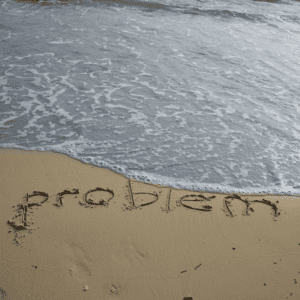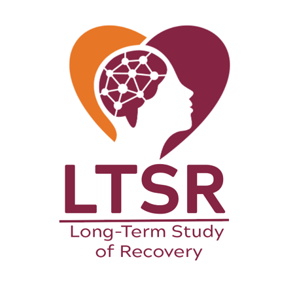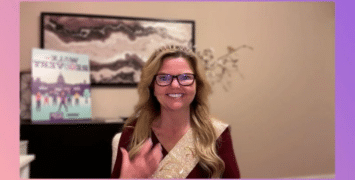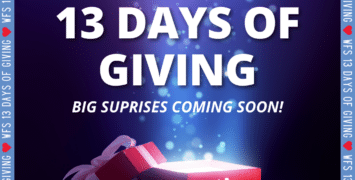Your cart is currently empty!

Monday Thoughts 10.17.22

“Being challenged in life is inevitable, being defeated is optional.”
Roger Crawford
“Learn from the stories of people who faced challenges you haven’t yet experienced.”
Joanna Barsh
“Look at a day when you are supremely satisfied at the end. It’s not a day when you lounge around doing nothing; it’s a day you’ve had everything to do and you’ve done it.”
Margaret Thatcher
#4 Problems bother me only to the degree I permit.
I now better understand my problems.
I do not permit problems to overwhelm me.
Don’t do that! Don’t even try. Why bother?
These were just a few responses my mind went to when facing a problem before my New Life. This led to an increase in problems that I either ignored or blamed on someone else. Denial of my problems was another tactic, yet it took time and awareness to grasp and understand this. Sobriety and Statement #4 in action allow for continued growth and feelings of accomplishment.
In our WFS Program booklet, it states, “The value of this Statement is in learning that we can control our reactions.” This is a powerful response for it places trust within ourselves which is usually absent in active addiction. One of the first places I saw this being modeled was in our WFS Online Forum. Here I found women learning to grow through their experiences, all the while sharing their joys and their sorrows yet continuing to invest in their New Life. This in turn helped me to realize I could do the same.
The first way I put action into Statement #4 was to create a sobriety plan to prevent relapse. Listing five different actions that I could take before turning to alcohol has kept me sober and focused on recovery. Additionally, two of the actions needed to include others, such as calling or texting a 4C sister or getting together with a friend. Journaling and physical activity such as walking or sitting in nature were added along with reading our WFS Program booklet (Number One on the list!) Using this basic framework for maintaining sobriety, we can focus on identifying a problem, creating an action plan, and moving forward. Now I have rephrased those sentences to “Give it a try! I can do it! I am worth it!” This week, identify people in your life who model empowering problem-solving behaviors. What can you learn from them? How can you apply that to areas of your life?
Hugzzz
Karen
Hi 4C Women,
Creating a plan for times when we are triggered, indecisive, fearful, or disappointed is key to being in charge of our responses/reactions. As I mentioned last Monday, I was so disappointed that my plans to travel home had to be canceled, yet WFS taught me to work through those feelings and have a follow-up plan. That’s exactly what I did. I was able to put Plan B into the hopeful possibility of traveling in the Spring. If I didn’t, the cancellation would continue to be a problem that kept me in those negative feelings when there is a solution. I am a big proponent of acknowledging all my feelings. However, if they are hurting my well-being, I let them visit but not unpack their bags for a long stay.
I found that in the past I worried about everything, those everyday things so when a real issue appeared that needed a plan, input from those I trusted, and various solutions, I remained stuck. I didn’t trust my instincts and was so afraid of failure that I pretended the issue didn’t exist and went back to the comfort of worrying about everything and accomplishing nothing! It’s wonderful now to have the energy and coping tools to work on the concerns that need my attention. If I make a wrong decision, I have learned to look at it as a life lesson that I can add to my coping toolbox.
Just as I felt fear, I learned to feel confident. I also changed my thought process from what is the worst that could happen to what is the best that could happen. Just changing that one word changed my attitude which changed the way I approached an issue.
Below is a combination of questions I found on Statement #4 regarding concerns/issues that need attention. I found that in looking back at my previous answers to these questions, I have added new coping tools and lessons and areas that still need change. I like to date these types of questions so when I do them again, I can see what growth I have made and where I need to perhaps focus my attention in the present.
1. What are the consequences of NOT changing this situation or behavior? Sometimes issues get resolved on their own yet if it is affecting our well-being in recovery, knowing the consequences will be a guide in deciding what to do or not do.
2. How have things resolved themselves in the past? I always looked to my failures as proof that I wasn’t capable of making positive decisions. Now I include my successes as well, otherwise, it would be disrespectful to any growth I have worked hard to attain.
3. What do I feel I have at stake in this situation? Is it the loss of a relationship, the embarrassment of speaking your voice (I related a lot to this question in the past), or the fear there will be no resolution? The answers will hopefully give you insight as to what matters most, and what you are willing to risk for your well-being, and your recovery.
4. What’s within my control?
5. What benefit am I getting out of keeping things the same way? (My previous answer was an eye-opener as I never thought of any benefit I was getting).
6. Who else can help? Who is part of your support system?
7. What’s the worse best that could happen?
8. Do I care more than the other person in this situation? If I do, why?
9. Do I need to review my boundaries or create boundaries that I can adhere to? This is the follow-up to question 8 to protect your recovery and well-being.
Bonded in not letting everyday problems overwhelm you and learning to work through issues that need your attention, Dee
Virginia Tech is recruiting adults in recovery from addiction, including alcohol, for a long-term online study to learn about diverse recovery pathways. Participants in this research study (IRB# 21-697) will complete 4 surveys per year over 3 years and will be compensated for their time (up to $1,280 over 3 years). Help us help others (Phone: 540-315-0205 | Email: [email protected])!




